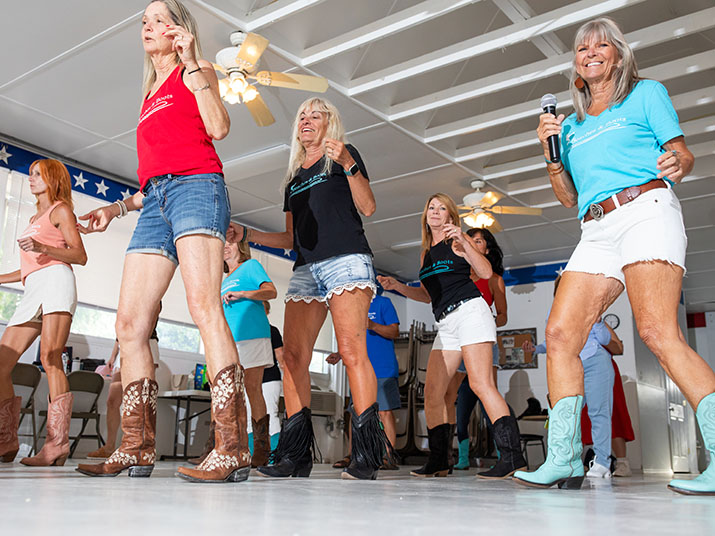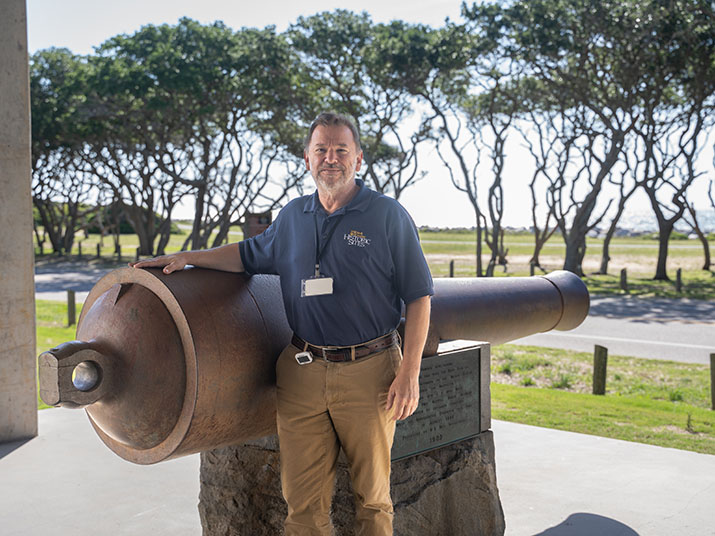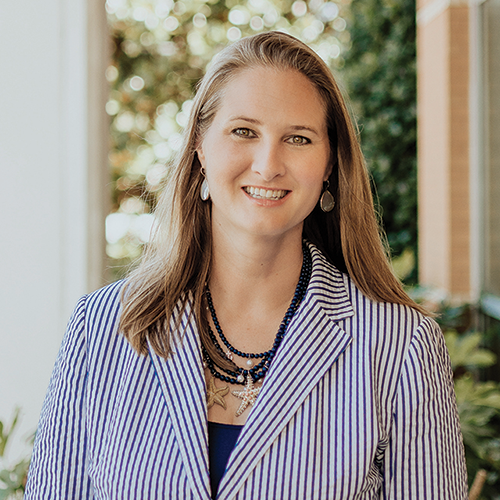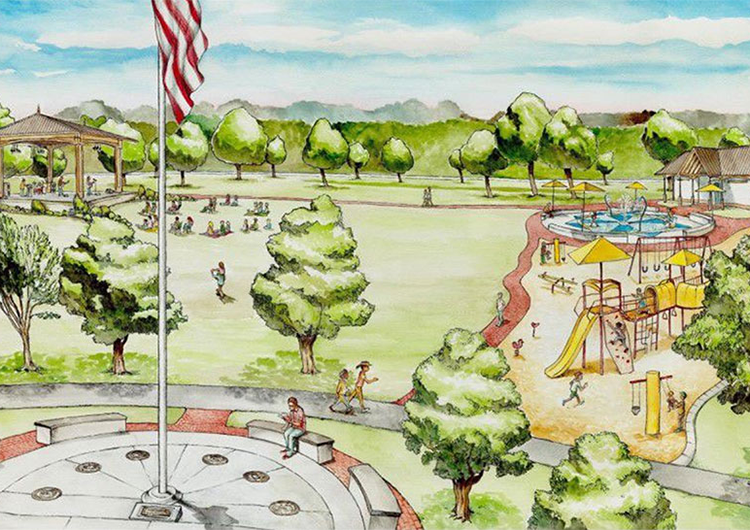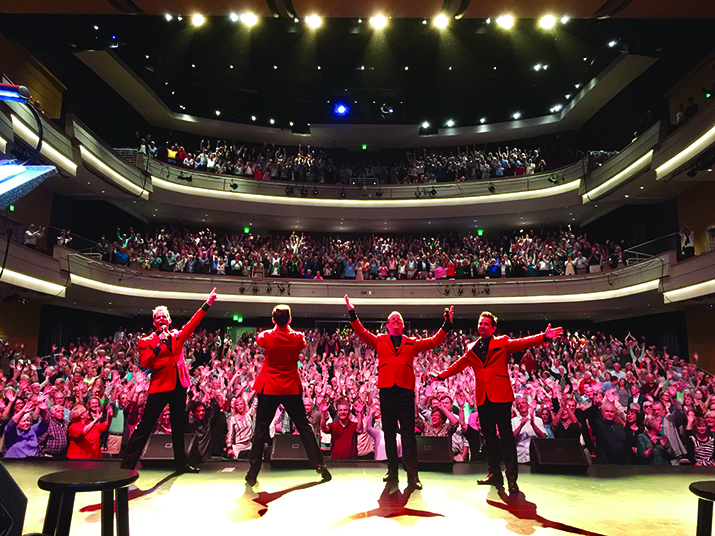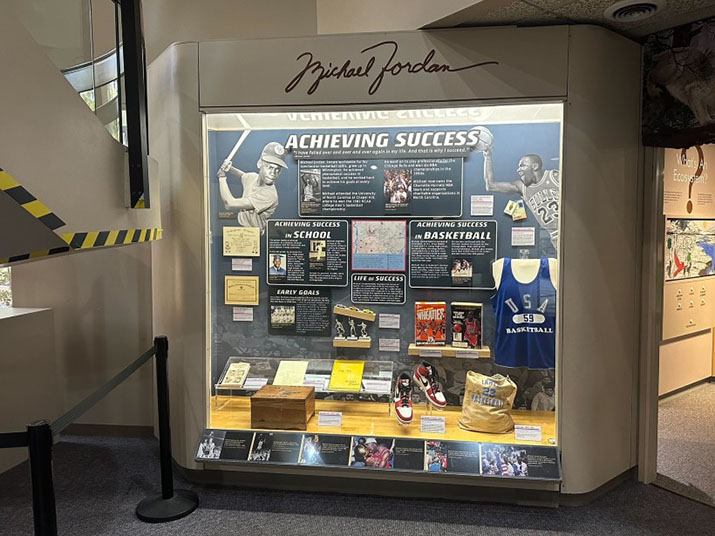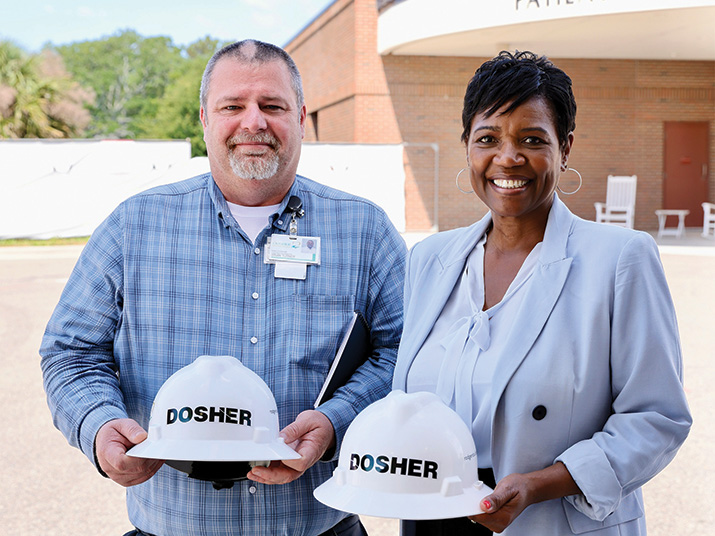The hometown teams: A sports report for new fans
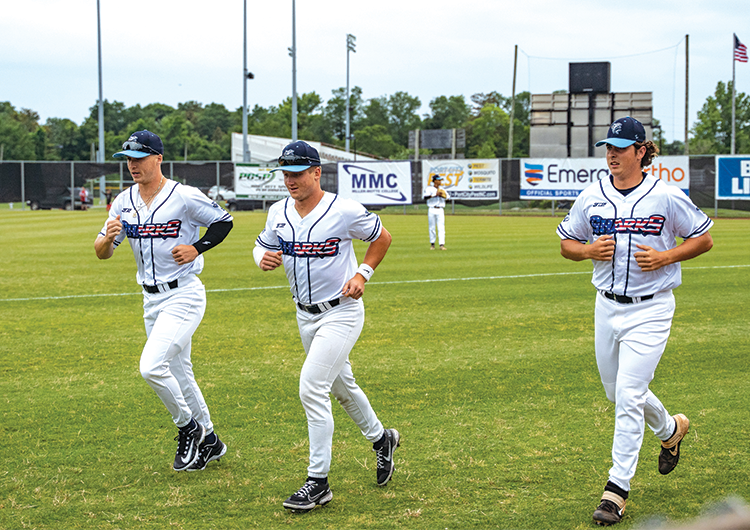
The Wilmington Sharks, of the wooden-bat Coastal Plain League, is the region's most steady baseball presence in recent memory. (Photo by Logan Burke)
The Cape Fear region has a long, disjointed history with professional sports. Dating back to the early 1900s, minor league baseball teams have come and gone. The earlier parts of this century saw the arrival and departure of professional soccer.
At present, the rapidly growing Cape Fear region is without a professional sports franchise. But that may be about to change – maybe.
In Leland, a project involving a new stadium is proposed to bring a Minor League Baseball (MiLB) team to the area, and in Wilmington, there are hopes for the return of a professional soccer franchise to Legion Stadium. Both projects have had initial interactions with local municipal governments, and, while both have their supporters, both also face hurdles in financing.
Baseball in Leland?
Plans for an entertainment district in Leland have been pitched, with the proposed centerpiece being a 3,500-seat baseball stadium with adjacent shopping, restaurants and office space. A 25-acre site, currently outside of Leland’s town limits off of U.S. 17, is owned by Jackeys Creek Investors LLC. The project, if approved, likely would see Leland annexing the site.
Economic upsides to such projects like job creation and tax-base enhancement are often cited as reasons for municipalities to invest tax dollars and assume debt to finance their construction. In April, Brunswick County officials dealt a blow to the Leland project when they announced that the county will not invest in the project, stating that there would “be no bond issue and no tax increase” to pay for the stadium.
In a news release following Brunswick County’s April announcement, County Commissioners Chairman Randy Thompson said, “We still believe this proposed project has great merit and could potentially provide the desired entertainment, shopping and dining options our residents have asked for over the years. While Brunswick County has decided to not take on debt to finance this particular project, our staff continue to work with all parties involved to find other ways to fund this concept.”
Some Leland town officials remain optimistic about the future of the baseball stadium and surrounding development. In an email statement in early June, county spokesperson Jessica Jewell said that the town is awaiting the results of an economic feasibility study regarding the project, which they hope to have later this summer.
The Texas Rangers of Major League Baseball (MLB), via its parent company REV Entertainment, is involved in the Leland project proposing to bring a MiLB team to the region.
The Rangers currently have affiliations with the Hickory Crawdads of the Southern League and the Down East Wood Ducks of the Carolina League. While no formal announcements regarding a potential Leland-based team have been made, the Rangers potentially relocating one of their affiliates to the Cape Fear would be the likely scenario if a deal is reached.
There are currently 120 MiLB teams, and the leagues and teams comprising MiLB act as the primary feeder system for MLB franchises.
Soccer and a food hall?
The Wilmington Hammerheads ceased operation of its professional soccer team following its 2017 season in the Premier Development League, the fourth tier of professional soccer in the United States.
Now, the group USL One to Wilmington is working to bring soccer back to the Cape Fear region.
“What we are about is trying to figure out, ‘Wilmington is a great place for outdoor events. What can we co-create together where we can have a lot more of those outdoor events?’” said Chris Mumford, managing partner of USL One to Wilmington. “That’s an open question, and I look forward to getting that sorted out.”
Mumford is a professor of practice at the University of North Carolina at Chapel Hill. He played soccer at UNC under legendary coach Anson Dorrance, best known for bringing 21 NCAA titles to Chapel Hill with the school’s women’s team, but who coached both the men’s and women’s Tar Heels squads in the 1970s and ’80s.
USL One to Wilmington’s goal is to have a USL One team – U.S. soccer’s third-tier professional league – play at Legion Stadium. The group’s concept includes the construction of a shipping-container food hall on the complex’s grounds to make the venture an economically viable enhancement to the community.
“With the food hall, we’ll buy the shipping containers, and we’ll outfit them to about 90%,” Mumford said. “Then we will identify some local restaurateurs, and hopefully, we can find a couple of grads from the culinary institutes at the community colleges, with the idea that they build up a bit of a following, and then they can rent space from us with the idea of building their following, where it’s not a five- or 10-year lease, which is what kills most restaurants where they can test their menu out and pivot along the way.
“The idea,” Mumford added, “is that we always want to have a couple of those that people can come in and give it a go for six months, a year, two years, with the idea that we’re going to provide additional entrepreneurship support with marketing, finances and good old-fashioned blocking and tackling so that then we can move them on and they can start other restaurants and businesses around town.”
While USL One to Wilmington approached the city of Wilmington about improvements to the Legion Stadium grounds, its concept does not include the same reliance on public financing sought for the Leland baseball project.
“My sense is that we have to find a municipal partner that wants to invest into a pro soccer team,” Mumford said. “I don’t think that means enormous bond issuances because, that’s not what we’re about, and I don’t know that the market supports that.
“We are committed to finding local investors that are committed to the balance between having more money come in and go out and fully appreciate the impact a pro soccer team and food hall could have on the whole city. So we’re spending time identifying local investors that make sense.”
USL One to Wilmington had hoped to have a team in place for the 2024 season, but deadlines set by U.S. Soccer have pushed a potential inaugural season further into the future.
Sharks keep swimming
The region’s most steady baseball presence in recent memory is the Wilmington Sharks of the wooden-bat Coastal Plain League. The team of professional-aspiring collegiate players has graced the diamond at Buck Hardee Field at Legion Stadium each summer since 1997. (Another collegiate-level team, the Brunswick Surfin’ Turfs in the Old North State League, began playing in 2021 and calls Brunswick Community College’s Founders Field home in the summer.)
The Sharks are owned and operated by Kansas-based National Sports Services who acquired the franchise in 2017. National Sports Services also has proposed to local government officials improvements to Legion Stadium, including infrastructure and amenities upgrades to enhance the fan experience.
“What’s interesting is that the facility is used by us, the New Hanover County High School program and by the American Legion program,” said Matt Perry, president of National Sports Services. “Within that, there’s always a discussion as to what are the priorities with the renovations.
“We’re a private-sector operator of a business that’s growing that needs more capacity for growing crowds, and that’s not necessarily what benefits the high school or the American Legion,” Perry added. “That’s not their priority. So a big part of it is trying to figure out what things benefit all parties and figuring out what things that we need that maybe don’t benefit other programs, and how do we pay for that.”
The impact of the proposed stadium in Leland, as well as USL One to Wilmington’s soccer-and-food hall project, are unknown, but Perry sees the interest in higher-level sports in the region as a feather in the cap to the Sharks’ successes.
“What we’re doing probably signals to others that the market can support fans if done right,” Perry said. “For us, we have a long history there, and we hope we’re there for another 25 years.”



